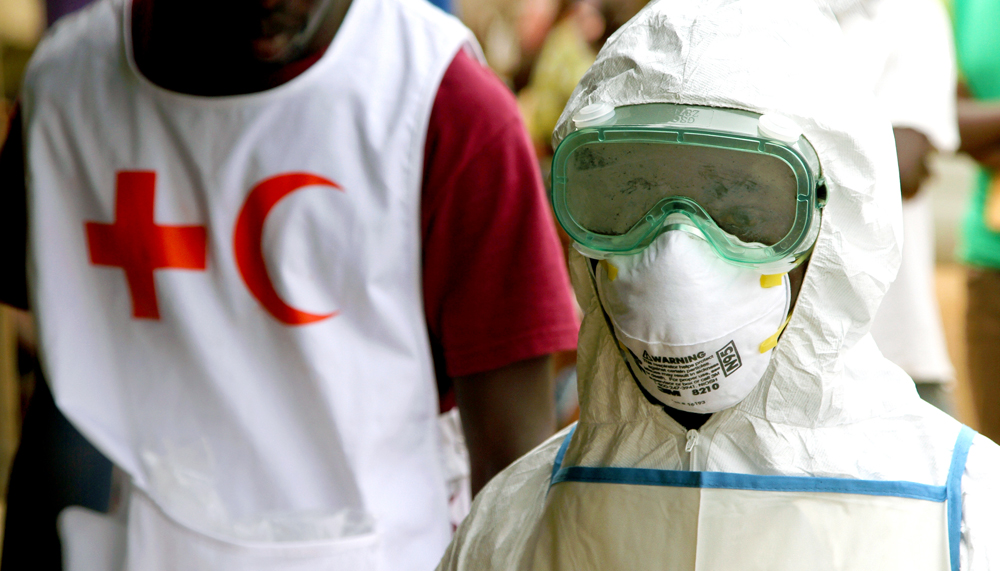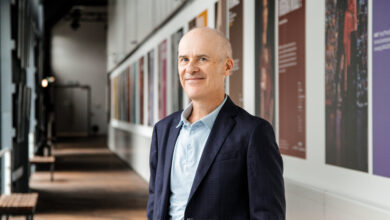Duty in the Ebola crisis

United Nations experts have declared the current Ebola outbreak like nothing the world has ever seen – something morphing from a local to an international crisis.
The World Health Organization has confirmed that more than 4000 people have died in the epidemic, with countries affected including Guinea, Liberia, Nigeria, Senegal, Sierra Leone, and the United States.
Australia recently had its own scare when 57-year-old Cairns nurse Sue Ellen Kovack was hospitalised and quarantined with suspected Ebola infection after returning from a one-month mission to treat patients in Kenema, Sierra Leone.
Kovack returned a negative result to initial testing – although the Queensland Health Department confirmed she would not be given the all clear until the end of the 21-day incubation period.
Whilst overwhelmed by the outpouring of support from family, friends and so many Australians, Kovack was quick to reiterate the focus needs to be brought back to the tens of thousands of people affected by the disease.
“The international community needs to do so much more right now to stop Ebola in its tracks, before it gets right out of control,” she says. “Most importantly to me, I’m sending a message to my fellow medical professionals who are thinking about heading over to treat the sick and work at bringing Ebola under control: Please, please do it.”
UN experts have declared the current Ebola outbreak “far ahead” of the global response thus far, cautioning what has been seen as a local crisis is fast becoming an international one.
Warning this is unlike anything the world has ever seen, Anthony Banbury, head of the UN Mission for Ebola Emergency Response (UNMEER) labelled the outbreak severe and unprecedented.
“The challenge is immense. We are late, but it is not too late to fight and win this battle,” he told a briefing of the General Assembly on October 10. “We are moving resources to where [they are] needed most.”
WHO was first notified of the outbreak on March 23 this year, although studies have since showed it started in December 2013.
Banbury warned that UNMEER could not fight this alone – that national and international partners were essential in achieving fast results.
“The world must now act to help the people and governments of Sierra Leone, Guinea and Liberia,” he said. “Failing to help will lead to unpredictable but very dire consequences for the people of the countries and well beyond.
“We must rise to the occasion. We must defeat this disease.”
The Australian Red Cross is campaigning to recruit nurses to assist with the crisis.
Matt Orr, team leader, delegate human resources, international program at the Australian Red Cross, says the organisation doesn’t regularly have to recruit for nurses and doctors – as they are lucky to have over time built up an excellent database of professionals. The Ebola crisis, however, has really challenged the group’s capacity.
“The needs of the broader Red Cross movement in West Africa are huge and we have found that subsequent to the [nine] deployments we have done [as of October 20] – we’re struggling to mobilise more people.
“The working conditions in West Africa are very difficult. It’s hot, people are wearing protective equipment that is very oppressive in the way its worn and emotionally it’s a very challenging environment due to the high mortality rates of the patients being treated.”
The group is looking for nurses with substantial remote-area experience who are comfortable in resource-poor environments and with handling emergencies.
“They need to be very competent nurses with critical care experience and ideally critical care qualifications,” Orr says. “They need to be able to handle things on their own and be comfortable working in very small teams.”
Physical strength is also important, as there is a lot of lifting and traipsing through remote parts of Africa getting to different sites.
The group is looking to recruit 10 to 15 people, who can be deployed over the next few months.
After passing a series of assessments and checks, successful recruits would first have a comprehensive briefing in Melbourne before being flown to Geneva, where they would undergo a two-day intensive Ebola training program.
In most cases, they would then fly to Sierra Leone – where they will be working short shifts seven days a week.
RN Elizabeth Bowell has returned from the Liberian capital Monrovia – one of the worst affected areas – where she was an emergency health co-ordinator supporting the Liberian National Red Cross Society.
During her mission, Bowell worked closely with a woman named Neima – the nurse manager of the main hospital at JFK in Monrovia. Neima alone has lost 16 colleagues, mentors and friends.
She said what had the biggest impact on her was the reality of the number of people affected and how close it is for everyone with whom she was working.
“I was with [Neima] when she lost her best friend, who contracted the virus caring for a patient at one of the hospitals,” Bowell explains. “The emergency department has lost all of its doctors and is now being staffed with interns and nurses – several of the nurses have also died, as have the physician assistants.
“The ED director contracted the virus from a patient early in the outbreak; within two weeks, he had died after collapsing in the car park – the anesthetist that picked him up is also dead.”
Bowell said one of the biggest challenges is asking volunteers and staff to do this work. She had many sleepless nights thinking, “What am I doing asking colleagues and fellow nurses to take this on?”
“Right now, there is no denying we have a critical shortage of people on the ground. If nurses are interested in responding then more than likely it will be in an Ebola treatment centre – so it will be a clinical role.
“Whatever agency you work with, you will be supported by experienced people. You will undergo days of training to fit into the nurse role wearing heavy [personal protection equipment] and deliver basic care in short periods – it’s a big ask!”
Never before has she seen agencies requesting people to put their hands up – but she’s confident that those who do will be placed into a supportive environment.
“It’s tough but extremely rewarding to be part of helping these people,” she says. “They are exhausted, it is not going away for many more months – so whatever we can do to support them we should.”
Bowell expects rotations to go on for some time into the next year; she’s advising nurses to think hard before agreeing to assist.
“The skill set [a nurse will require] is a calm head [that] can be confronted with a lot of death and despair and can work in really hot environments,” she says. “It will be an isolated environment in that social life is very limited; there is not much time off, hence why the rotations are only one month.”
She said another key element is understanding that whenever you work in this type of environment it is capacity building.
“You are not coming away to save the world and be a hero – far from it,” Bowell explains. “You are here to support, work alongside national counterparts … help them work through the emergency.
“We are also there to support overwhelmed or poor existing health services, so you may well be in a clinical role. I have worked as a nurse, as a PH delegate, as a team leader and as a technical adviser.”
Email: [email protected]





